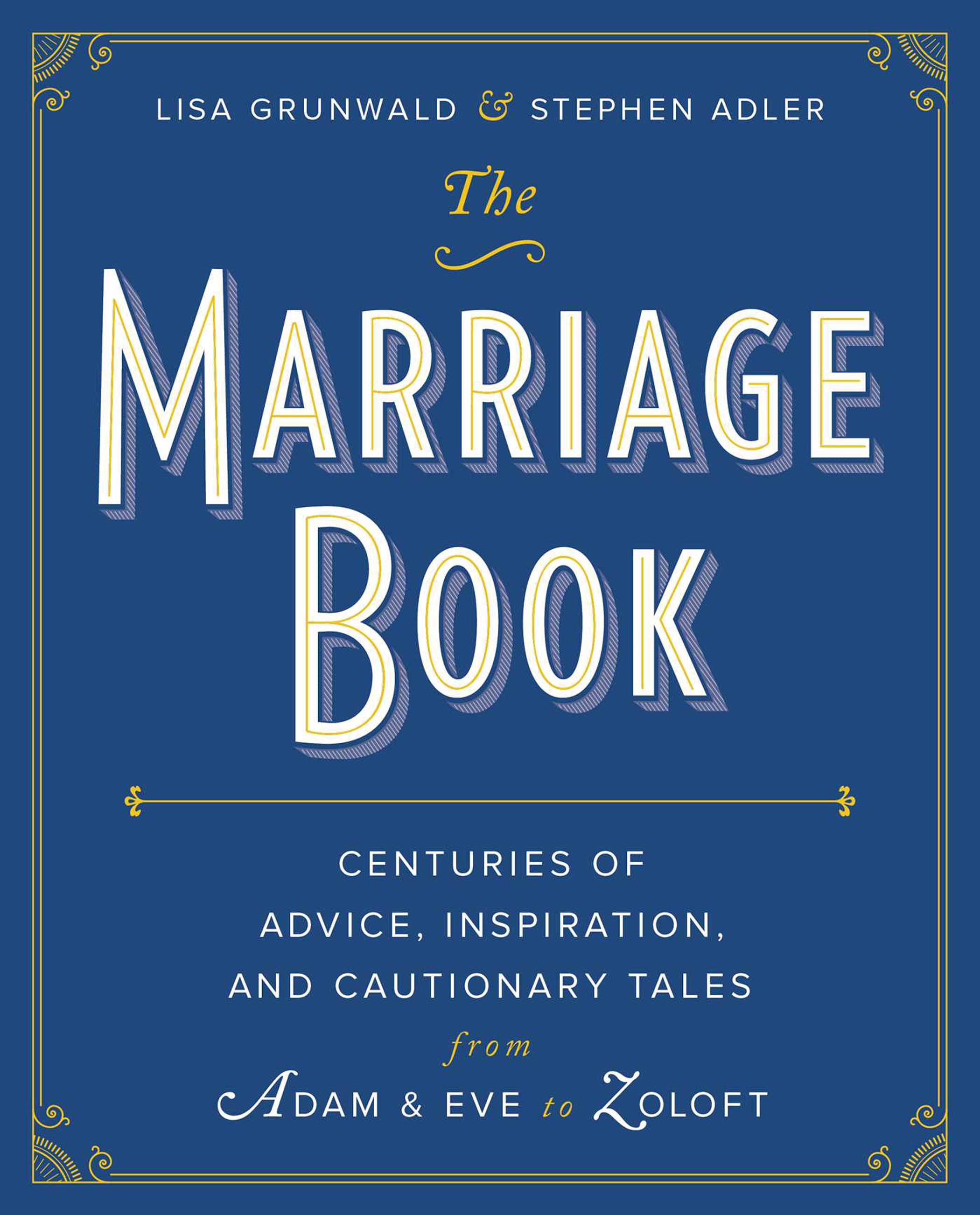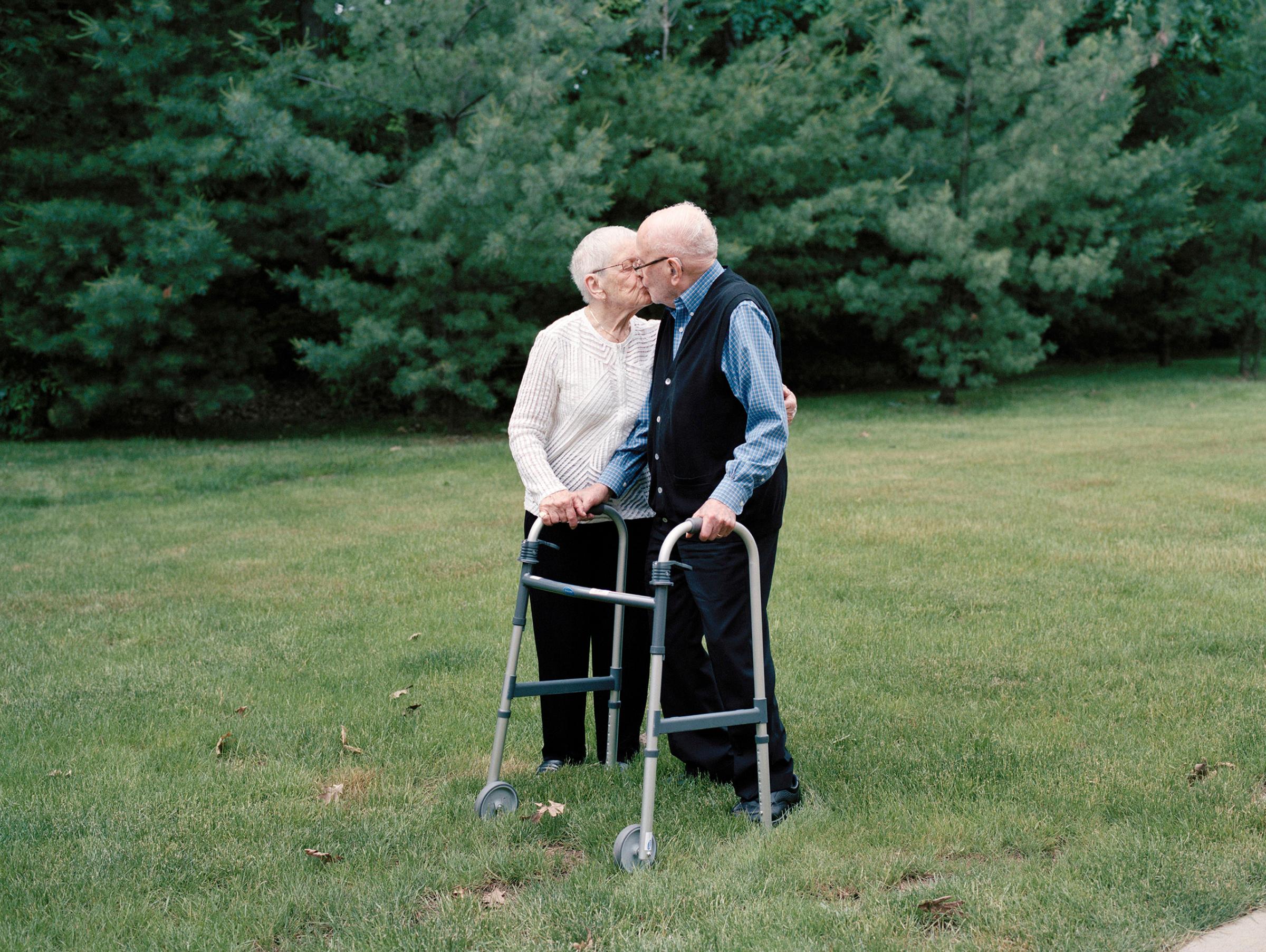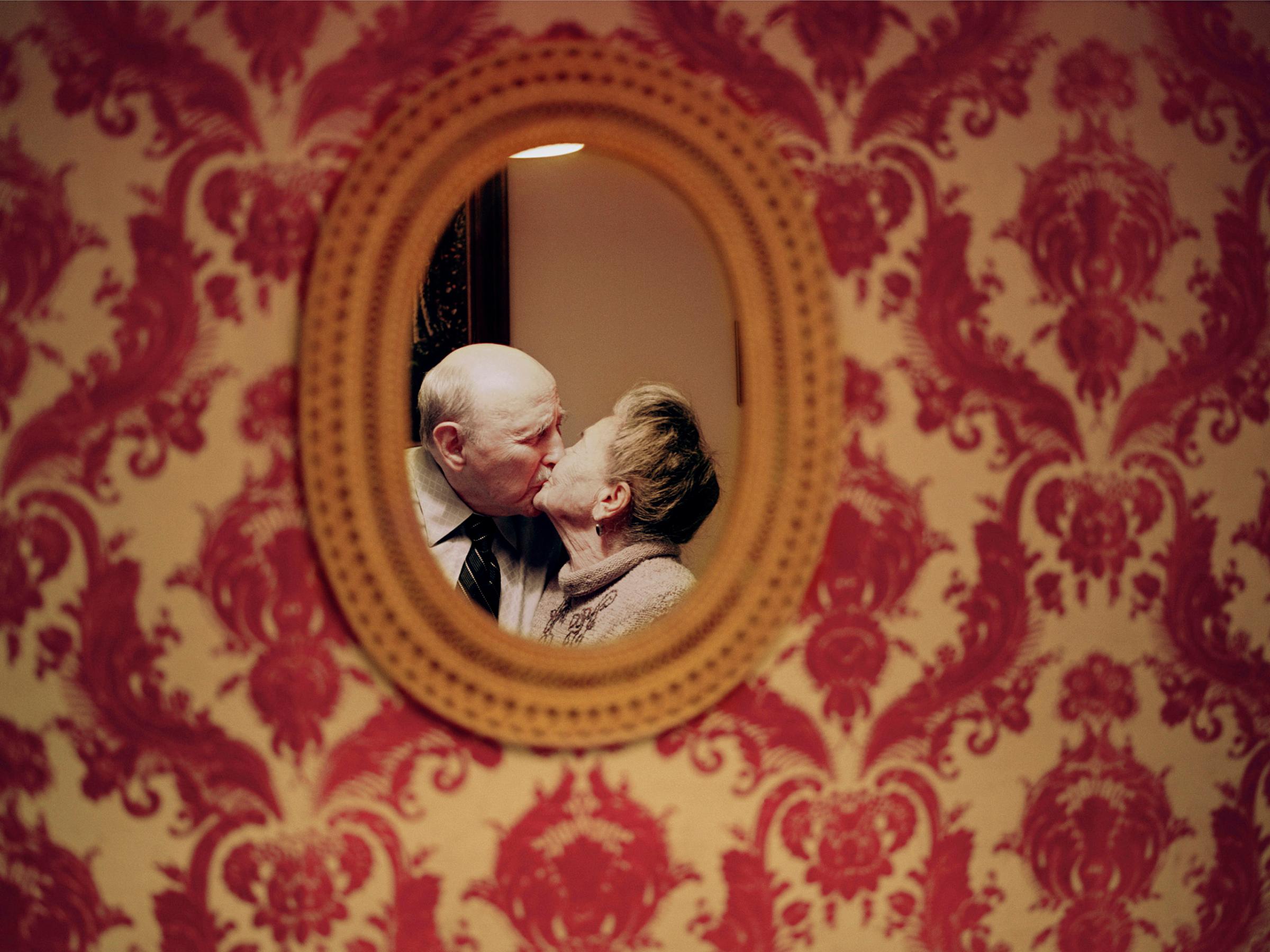
First, some numbers: I’ve been married (to the same person) for twenty-seven years. Those twenty-seven years have included six in which we were researching an anthology about marriage. That anthology (The Marriage Book: Centuries of Advice, Inspiration, and Cautionary Tales, from Adam & Eve to Zoloft) is 560 pages long. Those 560 pages include 529 entries that we arrived at after scanning—honestly—tens of thousands of books, poems, newspaper articles, letters, postcards, photographs, and songs.
So after all that searching, I’ve been asked to name the one—just the one—best piece of advice that my husband and I would offer a newly married couple.
Are you ready? With the caveat that there are 3.7 pounds of other wisdom in our book, this is it. It was written in a notebook in 1909 by the poet William Butler Yeats when he was 44:
In wise love, each divines the high secret self of the other and, refusing to believe in the mere daily self, creates a mirror where the lover or the beloved sees an image to copy in daily life.
Simply put: If you’re smart about it, you’ll rise above the inevitable setbacks and stresses of a shared life, and you will make it your lasting mission to bring out the absolute best in your spouse.
How do you do this?
You have to banish contempt. Contempt is an acid, and it etches ugliness into love. To banish contempt means that when your husband has given in to his least attractive tendencies, his most fearful, or fearsome; when your wife has lost her focus, her patience, or her heart, this is the moment when you must exercise the x-ray vision I’m sure Yeats would have mentioned if he’d known about Superman. This is the moment when you must see through the annoying, demanding, complaining, failing, faltering wreck in front of you—and find the strong, kind, fascinating, functional person you know your spouse wants to be.
You have to learn to be a critic without criticizing. Thanks to the internet, I now know that the origin of the word critic is the Greek word kritikos, which—strangely enough—does not mean “able to pick at flaws incessantly” but does mean “able to make judgments.” This is a crucial difference. The kind of criticism that helps marriage is the kind you learned in English class: studying something so well that you can find its hidden patterns and its deeper truths. If you apply this kind of criticism in marriage, it is actually possible to stop a spouse in mid-spiral (sometimes even in mid-sentence!) and say, “Excuse me, no offense, but you are not being the person you want to be.” The pronoun is vital. The difference between “who you want to be” and “who I want you to be” is the difference between encouragement and nagging: spark and ash.
You can’t do this without understanding what it is that your spouse truly wants. That may sound easy, but isn’t. In the short term, you might know she wants a promotion, or he wants to live in the country. But that is not the “high secret self” you need to know. The “high secret self” exists apart from daily desires and even apart from the twists of fate and fortune that get in the way. Example: A long, long time ago, I asked my husband what he wanted. I mean Wanted, with a capital W. I asked: Is it fame? Money? Power? Adventure? He gave me his answer (PS, it was none of those things), and, when he asked me, I gave him mine. The specifics only mattered to the extent that we each had an answer, and that neither of us was planning to knock off a bank. Since then, we have, to the best of our abilities, been the guardians of each other’s answers, the guardians of each other’s best selves. (Naturally we haven’t always succeeded, and naturally some of our goals have evolved over time, but, hey, a foolish consistency is the hobgoblin of little marriages.).
In 1928, Henry Neuman, who was a leader of the Society for Ethical Culture, wrote a book called Modern Youth and Marriage, and in it, he gave advice remarkably similar to Yeats’ journal jotting:
Disillusion, of course, enters in time. There are no full-grown perfect beings. Sooner or later the frailties are recognized. But there is in most people a better self which the fallible self hides; and the greatest privilege of the married life is to be the one who assists the other more and more to do justice to that better possibility.
William Butler Yeats spent his life desperately in love with a woman he never got to marry, so, sadly, he never had the chance to exercise this privilege. To newly married couples, I would say: Seize it. Assist your spouse in doing justice to that better possibility.And while you’re at it, remember: say I love you, put the cap back on the toothpaste, and never —no matter how great the provocation—insult one of your in-laws.
Read next: 14 Pieces of Practical Dating Advice From My 85-Year-Old Grandmother
Listen to the most important stories of the day.
Photographing a Kiss: Long Time Love Affairs









More Must-Reads from TIME
- Donald Trump Is TIME's 2024 Person of the Year
- Why We Chose Trump as Person of the Year
- Is Intermittent Fasting Good or Bad for You?
- The 100 Must-Read Books of 2024
- The 20 Best Christmas TV Episodes
- Column: If Optimism Feels Ridiculous Now, Try Hope
- The Future of Climate Action Is Trade Policy
- Merle Bombardieri Is Helping People Make the Baby Decision
Contact us at letters@time.com